
The L.A. Daily News exposes 'teacher jails' and rampant sex abuse in Los Angeles schools
Ever heard of "teacher jail"? We had never heard of it, either, until Barbara Jones at the Los Angeles Daily News reported that the Los Angeles Unified School District (LAUSD) has removed nearly 300 teachers from its classrooms at a cost of over $2.2 million per month because they have been accused of abuse or "misconduct." The district has assigned these teachers to an administrative facility referred to as "teacher jail" to just sit around all day until the allegations have been resolved.
The Daily News' disclosures about Los Angeles public schools underscore a real, current-day problem of child sex abuse that the mainstream media has chosen to ignore since it does fit its accepted narrative.
Public schools: Behind the curve on sex abuse

Kudos: L.A. Daily News'
Barbara Jones
"We have zero tolerance for inappropriate touching," Jones quotes Holmquist, "and that probably hasn't always been the case, to this degree."
In other words, despite all of the media attention and obsession about abuse in the Catholic Church over the past decades, LAUSD is just now getting around to adopting a real "zero tolerance" policy that all bishops implemented a long time ago.
Unreal.
It also turns out that LAUSD is now finally getting around to having professional investigators and a "sex-abuse team" scrutinize teacher sex abuse allegations. By contrast, for more than a decade now, Catholic dioceses have had panels of experts evaluate and review claims of abuse.
Unbelievably, untrained school principals have handled most of the complaints against teachers up until now, reports Jones.
The mainstream media's blind eye
While the media still has an insatiable appetite for bludgeoning the Catholic Church for abuse episodes committed many decades ago, it remains remarkably quiet about school districts still scrambling to establish protocols and procedures to protect children from abuse. (Imagine if it were revealed that a large archdiocese was housing 300 priests accused of abuse or misconduct in "priest jail." Is there any doubt that such a story would be a humongous national news event?)
Meanwhile, the Catholic Church has implemented measures and practices that have made it the safest environment for children today, yet you would never know this from the media coverage.
Again, kudos to Barbara Jones at the L.A. Daily News for challenging the mainstream media's cramped narrative.
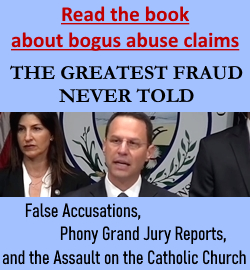

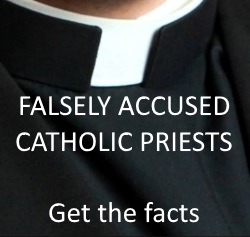
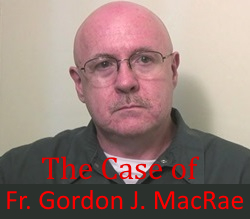
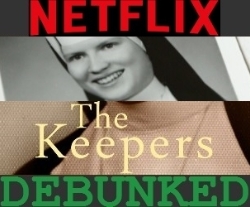
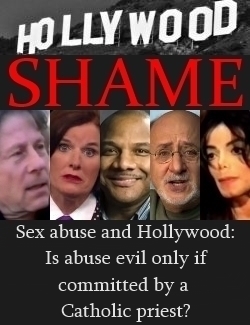
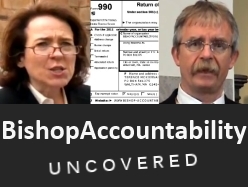
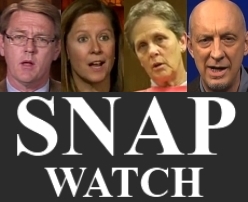
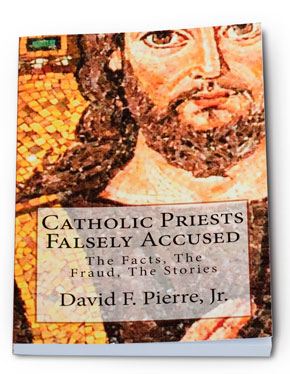
Good work, Daily News
Finally an antidote to lazy journalism.
Walter, it would be nice if the actual problem was limited to "laziness."
It is also anti-Catholic bigorty by liberal media types but there is also a lot of simple laziness involved in it as well as it is an easy story to get as it is fed to the media by plaintiff's lawyers.
Good that LA is doing something. This issue has been publicized in the past decade in major cities like NY, where accused teachers go to"rubber rooms" to do administrative so called work, while their cases are addressed.
Here is the thing. Just like in the catholic church, in a public school the livelihood/vocation of the accused is at stake and there is a collective bargaining agreement (cannon law) that has a lot of job protection for the accused bulit in. The paid stay in teacher jail (on leave) will be long and the process cumbersome. The accused's good name is at stake and perhaps all there is to go on is the word of one child/young person and some circumstances. Short of having a criminal conviction in hand, expect a slow go and dissatisfaction. A life of prayer and penance, anyone?
If I may first note: at the end of comments on the immediately preceding article I have just submitted an extended comment in response to the otherwise last comments on that thread.
I now turn to “cannon law” (are we really dealing with a formally-educated and practicing attorney here?): I would strongly challenge the characterization of canon-law as a “collective bargaining agreement” (apparently in order to rhetorically and conceptually link the Catholic Church Abuse Matter with the formal and clearly-delineated union contracts that govern public school employment).
The Code of Canon Law is a legal system, a corpus of law designed to specify the legal rights and responsibilities and procedures governing such trials and juridical procedures as fall under the purview of the Church’s legal system. It is no more of a ‘collective bargaining agreement’ than the corpus of American jurisprudential procedures and regulations and laws can be characterized as a collective bargaining agreement between the Sovereign Authority of the government and the Citizenry. (Link to its text at the bottom of this comment.)
I would like to see any quotations from that Code that in any way justify the assertion that it has “a lot of job protection built in”.
Perhaps the Code no longer receives even a cursory overview in law-school curricula these days, but I will point out here what I have said in prior comments on this site: the Code was evolved to introduce order into a rather hodge-podge (not to say chaotic) cacophony of ‘justice-doing’ that characterized Western society after the fall of the Roman Empire in the West. It relies heavily on – among other now-established concepts – the then-somewhat novel concept of rationally-derived and rationally-demonstrated evidence to support accusations, the whole to be administered according to centralized and clearly-delineated rules to ensure that that Sovereign’s coercive authority not be mis-deployed against its subjects.
As time went on, its template was adopted by the plethora of justicial authorities (medieval barons and other non-monarchical rulers) and then by the developing national monarchies of the West; ultimately the template found its way into the American system of justice as envisioned by the Framers, many of whom were trained in English law and legal tradition.
Further, to repeat material I have only recently discussed in comments to the TMR article immediately prior to this one, it was especially during the recent decades here in this country that the core Western template of evidence-based investigation and prosecution was in some core ways replaced by the ‘revolutionary justice’ template grasped for their own purposes by the nascent Soviet government and Sovereign Authority and thence by Fascist and Nazi and then Maoist jurisprudence.
The core presumptions of this ‘revolutionary’ system were that a) certain crimes are so lethal to the State (acting either overtly as itself or – more often – claiming to act for “the masses” or “the people”) that their existence can and must be presumed accurate and justified by the Sovereign Authority upon the merest allegation; b) that in its role as defender and protector of the masses and the people (not to say itself) and in light of the ‘emergency’ and ‘threat’ created by the allegated-crime, the regime must forthwith deploy its Authority not so much to investigate (considered to be counter-revolutionary hair-splitting, delay, and obfuscation) but rather to strike the accused; c) that the laborious process of discovering sufficient ‘evidence’ is itself merely a counter-revolutionary effort at delay and that defense is itself merely a form of the guilty attempting to obfuscate the fact of their own (presumed) guilt; and d) that any attempt to deny or defend oneself simply demonstrated further that the accused was guilty of not-thinking-with-the-people and/or of counter-revolution and/or of generally and fundamentally obstructing the agenda of the regime and the glorious progress of the masses and the people.
While there has always been a natural human tendency for any Sovereign to abuse its Authority, the revolutionary template actually erected such interference and manipulation as both necessary and – as Law – virtuous, and thus spawned an entire legal ‘philosophy’ to justify it.
It has been my further contention that this revolutionary template and the essentials of its ‘philosophy’ began to be taught in American law-schools as cutting-edge ‘reform’ and ‘change’ in the past half-century or 40 years.
My own position: this ‘revolutionary’ law template was ‘new’ to the US and the West not because it was recently discovered (as in a scientific discovery) but rather it was ‘new’ to the US because the Framers knew very well that they absolutely did not want such a regressive throw-back to Dark-Age justice to gain a foothold in this country.
Thus when I read here – and by someone putatively a practicing attorney and member of the Bar in some US State – that Canon Law (and implicitly, its fundamental conceptual elements) is merely “job protection”, I see it as simply and baldly a variant of the core objections that could be raised against Western and American justice by the revolutionary school of thought.
And additionally, since the so-called ‘victim-friendly’ approach to law has so deeply drunk of this poisoned well and eaten the fruit of the fundamentally poisonous revolutionary tree, then I see this as an attempt to somehow continue to muddy waters that should be made crystal-clear for Americans: i.e., ‘revolutionary’ law has now become – far more than many Americans might imagine – the conventional legal practice of the land. And that this has been achieved specifically and precisely not only by formal legislation but also by fomenting in public-opinion the implicit but powerfully emotional assumption that ‘evidence’ and the insistence upon rational and demonstrable and sufficient evidence according to a rigorous and demanding procedural process is merely an attempt by the guilty to cover-up their guilt.
And to spin all of this ‘progress’ and ‘reform’.
As I said, the link to the English text of the Code follows below. A reader need not be an attorney or law professor to peruse it – or even its table of contents – to perhaps realize that it is indeed a formal law code and not any sort of bargaining agreement or union-contract.
And also that such time-and-effort-consuming requirements as are set forth are no more designed merely or primarily to provide “job protection” to any accused than the Bill of Rights as set forth by the Framers was merely or primarily designed to ‘protect’ and ‘further enable’ the (presumed) criminal careers of Citizens accused of crimes.
http://www.vatican.va/archive/ENG1104/_INDEX.HTM
The Good News for priests is that they are not required to fill out those "creepy"
questionnaires administered by these teachers. http://www.michellemalkin.com/2013/03/15/time-to-opt-out-of-creepy-fed-ed-data-mining-racket/
http://www.truthinamericaneducation.com
Please say a prayer for distracted parents, and for the assertive parents who
speak up and request the "opt-out" form.
Alright, so now I spelled canon wrong. But only because I was not writing about weapons? Kidding. Too bad for me. I have also omitted punctuation and misspelled other words.
"Perhaps the Code no longer receives even a cursory overview in law-school curricula these days," Right. Unless one goes to a catholic law school with money to pay for classes of almost purley academic interest.
"but I will point out here what I have said in prior comments on this site: the Code was evolved to introduce order into a rather hodge-podge (not to say chaotic) cacophony of ‘justice-doing’ that characterized Western society after the fall of the Roman Empire in the West."
Here is a theory, based on the history you are talking about, in Cliff's Notes form: No Roman Empire, no Emperor Constantine making christianity the official religion of the empire, then we do not get some of the best minds behind christianity thinking everything up in a christian context. Or did it just spread on the merits of the truths of its teachings.
"It relies heavily on – among other now-established concepts – the then-somewhat novel concept of rationally-derived and rationally-demonstrated evidence to support accusations, the whole to be administered according to centralized and clearly-delineated rules to ensure that that Sovereign’s coercive authority not be mis-deployed against its subjects." Yes. If you live in a dictatorship where the ruler is a god or almost a god, it would pay to come up with a system that tries on paper to check authority so that it will not be mis-deployed against anyone under it, including oneself.
This is the concept that I would liken to a CBA. Workers protecting themselves from the company/government/authority's misdeployed coercive power. Negotiated CBA provisions are mirco examples of rights in the form of law asserted by the people and ratified or agreed to by government. I know that this isn't that tight. All I meant was that teachers don't just get fired because they have contracts. Priests don't get fired or laicized (or whatever the correct term) because canon law entitles them to a process, due process. It is much like one would get in the American criminal justice system. My point is that all three of these things move very slowly, most of the time. A teacher could be accused and then put in teacher jail for a long time just like there are many accused priests "on leave" for a long time. The guy I accused was first accused in 1999. He has been on leave since then. His canonical trial is still in process. All this time he gets paid, gets raises, and gets insurance like health and dental. OK but expensive, if you are helping to pay for that: teacher, taxes; priest, donations. I would just contrast both of these employment senarios with the private sector where you just get fired. It is just a job. The is no grievance procedure, no arbitration, no trial, no appeals process. For better or for worse, speedy. So CBA or canon law, slow to results.
Nope, sorry. A Harvard education and a practicing attorney and you can’t keep the difference straight between the artillery-piece and one of the West’s most historically influential legal Codes? Yes, it’s a possibility that it was simply a typo. But given the significance of the term and the context here in which it is used, I submit there are other possible explanations. Let the readership decide.
As to the just-“kidding” bit – I have just put up an extended comment (not last night’s; tonight’s) at the end of the comments on the immediately previous TMR article that covers this bit.
I think that in my above-comment and several recent other comments I have established clearly enough that the Code is not only merely “purely of academic interest” but rather that the issues enveloping the Code and the current (parlous) condition of the integrity of American and Western law. As I have said: it was precisely in kicking the fundaments of evidence-based Western and American justice-doing to the curb that the country was then led into the repellent and toxic thickets of ‘revolutionary’ law and the ‘philosophy’ developed to try to justify that approach.
The fact the George Washington was the first US President is also in Cliff Notes. Does the fact’s presence in such publications somehow undermine its credibility? Rather, I think what we are seeing here is the pomo academic and law-school approach that ‘we here today’ are just so much better informed and can and must throw all prior history and objectivity out the window. Precisely the attitude of the early Soviets and their cadres: screw History – we are making it now and we will make it perfect! If you doubt that you are going to the wall, just like Lenin says!
Look where the adoption of all that has led us – precisely as it led the Soviets.
Constantine made Christianity legal in the Western Empire, and later in that century it was made the official religion of the Empire. If anyone wishes to surmise that a persecuted and rag-tag religious organization managed through its own devices to force that Emperor’s hand in 313AD they are welcome to such a pipedream. Following that, the Church did the best it could with the material presented. Somehow Western civilization came about, after the fall of that Empire and the Dark Ages collapse of civilization in the West – simultaneously beset in the meantime by resurgent barbaric tribes (various of the –Goths), an explosively ambitious Islam, and the Vikings, to name but a few – and the Church of that era found itself trying to sail a course while being carried along on those flood-tides and storm-waves.
If BosSurv cares to share his historical illuminations – to the effect, perhaps, that actually Western Civilization invented itself and only later the Church historians ‘stole the history’ and recast it in purely Catholic or Christian terms – then I for one would look forward to reading such a thesis. My own surmise is that they are actually teaching something like this in various venues these days; and that it has become a staple illumination and excitement among certain groups, no doubt amplified by the Web.
Again with the idea that the utterly vital due-process protections built into Western and certainly American Law’s foundations are usefully or primarily imagined or construed as “job-protections”. Readers who have ever tried to sue an attorney will quickly realize that the State’s laws (written by and/or at the urging of attorneys) and the regulations of that State’s officially-empowered Bar Association, provide thus quite a few “job protections”: meaning that the person trying to sue is going to run into a long and involved process. Nor do I take issue with the fundamentals of this arrangement: professionals deserve some due-process protection when their jobs and their livelihood and good-name are at stake.
But beyond this, I note the lethal (and lethally fatuous) presumption that anything that interferes with the ‘justice’ of quickly deploying the Sovereign Coercive Authority against any accused is a screamingly vivid and clear example of the template of ‘revolutionary’ justice, as I have discussed at length in prior comments – and very recent ones – on this site.
I would add here that if one substitutes “the victims” for “the masses” and “the people” in most old Soviet and similar types of revolutionary declarations, you instantly get the queasy realization of just how treacherously similar the so-called ‘victimist’ and the ‘revolutionary’ templates of Law actually are.
And I further note that I am here referring to ‘victimist law’ and am not here disparaging ‘victims’ as such.
And I submit that the sudden uneasy frisson that most contemporary American readers may feel psychologically and emotionally, when they realize that they have allowed themselves to think of such a thought about ‘victims’, precisely exemplifies and locates the extent of the derangement of contemporary American awareness of the vital fundaments of American and Western Law: we are now self-suppressingly fearful of even entertaining such thoughts about the Correct Line or Spin, even as we can see that somehow there are rather grave dangers involved in that Line and Spin.
Nor does the fact that the process (of necessity) moves “slowly” make it per se a “job protection”.
Yet I would also note that by the time any accused priest’s case has been sufficiently established as to justify canonical juridical action, the possibility of his still functioning in ministry as a priest are – at the very least – minimal. Especially in the American situation currently, where an allegation might be deemed “credible” merely by proof that the allegator lived in the same general geographical area during the time-frame when the allegated action is claimed to have occurred – resulting in the priest’s suspension.
And here we see a sly conflation: While those with Ordinary authority may suspend a priest from his ministry upon such parameters of ‘credibility’ as they choose to adopt, Rome retains the sole right to adjudicate whether a priest might be laicized. Current demands by victim-interest groups have apparently moved beyond simply getting the priest out of ministry, and now complain that he is not being ‘defrocked’ quickly enough … proof (but of course) of Rome’s refusal to mete out ‘justice’ (as they would like it defined).
And one can only imagine what tort-attorneys might think if the same type of demands were raised against them on the basis of client allegations of mis/mal/non-fesasance.
And in two ways I would not agree that “it is just a job”. First, priesthood is not just a job; it is a calling. Non-Catholics or anti-Catholics might not see it that way, but so what – really? Second, it is a livelihood – and you don’t want to go deploying the Sovereign Authority (political or canonical) unless you are very sure that such a coercive assault on the accused’s future life-prospects are merited.
And it must be noted here – as a matter of direct relevance to the material presented by ‘Bos Surv’ – that, as I have noted in prior comments, the material he provided to investigators at the outset of his claims was itself a significant part of the problem. It is necessary to note this since he has used his own case as an example of some sort of job-protecting foot-dragging on the part of the Church in the matter of the ultimate fate of the accused’s ministry.
And may I also point out that a (putative) practicing attorney who commits him/herself to sustained comments on a subject such as this, yet doesn’t quite know the difference between “fired” and “laicized” – “or whatever” – really doesn’t do much to bolster his/her own creds as a serious professional, let alone as a serious commenter.
Lastly, in regard to “slow results”: this is precisely a Problem that the Church has faced in human affairs for millennia. With human beings – and with their history – you don’t often get quick and simultaneously mostly-good results. That takes time, given the nature of humans. It takes a long time to train priests, and sometimes or in some ways, you still don’t get perfect results in terms of your objectives. The same is true of elite universities and law-schools, no?
This was also precisely the problem with Dark-Ages ‘justice’: the equivalent of a village lynch-mob was a heck of a lot ‘quicker’ than any fuddy-duddy diddling with ‘evidence’ and ‘investigation’ and ‘due process’. But so what? Life was hell anyway and dying by (mistaken) lynch mob was as OK a way to die as the plague or getting speared by your local nobleman’s gangstas. The Church’s objective had been to move the West beyond that, as much as it could be achieved.
Ditto the Soviet revolutionaries: change – vital, lethal, and profound – was to be administered and effected Right Now and no haggling over guilt or innocence or the rights to ‘free thought’ or any other crap about the Image of God or the dignity of the individual or bourgeois ‘due process’. The demands of the regime – and “the masses” and “the people” – overrode all that piddling dreck. Because – the Soviets were so very very certain – they knew what they were doing and would finally spackle up Humanity and its History.
To which I can only respond: Yah.
For that matter, the Framers were always leery of quick and hasty action, since more often than not such actions turn out to have been ill-considered and yield frightfully bad consequences (one thinks here of the Iraq invasion and the various economic Bubbles, among recent examples).
And – especially now that they are having some up-close and personal encounters with it – would most folks want to see anybody “just fired” these days – however “fired” is defined?
And is it actually being suggested here that the Sovereign Authority – political as well as canonical – be made to conform more closely and fundamentally to the “just fired” approach to Law? It recalls Lenin’s pithy insistence: “Our revolutionary courts must shoot!”
But I guess they don’t teach much history in elite universities or law-school these days. After all, it’s nothing more than merely and “purely academic”.
Yah.
BostonSurvivor is a fraud.
Take a look at sites and blogs dealing with the subject of wrongful conviction of abuse and miscarriages of justice, and you'll find numerous losers claiming to have been abused by priests. Man, the anti-Catholic bigots are growing really desperate in their attempts to "keep the ball rolling" as Publion calls it.
Mark, I already got paid so if I am a fraud, I am a successful one. The archdiocese believed me readily because they know me and they know him. I was a seminary student at St. John's in 1995. They had my background, history, psych testing, academic records – everything. They also of course knew him as a long time priest ordained in Boston in 1978. He had a file hundreds of pages long. They ran their process and said I was credible. I am no fraud.
BS, unfortunately, there have been many successful frauds in the Truth Abuse Scandal.
And many innocent priests sit behind bars because of their "success."
That is just not true. Wrongful conviction is the refuge of the delusional. Very rare.
[Edited by moderator] If you want to check out Publion's credentials, simply go to his profile or blog. . . or just read his writing. [Edited by moderator]
Your passions are as I suspected for an academic exercise. You love history and politics and religion and no one has ever really hurt you, never taken anything from you, never duped you when you trusted them. This is all just debate to you. I am not a trial lawyer and I am no great debater. But I am no liar. Example: My criminal case did not go forward because I could not be precise about when penetration first occurred. I was honest I just said what I remembered and what I did not. The investigative team needed a story like, oh he first did oral on me right before my thirteenth birthday, I will never forget that date because . . . And then when they talked to others like my parents, friends, brother or wife. They could at least say, Oh yea, he told me the exact same thing. Or in the case of my parents, they would tell of some adverse behavior that they noticed in me right at that time. When all you have is testimony and circumstances, the story has to be really precise for a charge such as rape to go forward to a grand jury. I did not have that. For myriad reasons, I could not honestly recall the first time that accurately from that far back. But OK. I am not complaining about that. Do not make me out to be. Now, go ahead and doubt that any one in those circumstances could not remember that first time.
First, I apologize for not having put any new material up on my blog since last October. I have been spending a lot of time on TMR and on other projects. Readers are welcome to peruse it.
Second, we note that the putative elite-university graduate and practicing ‘attorney’ has disappeared here and now we have some good old-fashioned cafeteria food-tossing, such as it is.
Third, Bos-Surv must demonstrate how he has gotten from a) the fact that I engage a number of (to me, vital) subjects conceptually and analytically to b) the claim that it’s all just a debating game to me and I don’t really care for much at all. Let alone the further claim (Tinfoil hat? Crystal ball?) that “nobody has hurt” me or that I have never been let down by persons I trusted (although I never have – I acknowledge – allowed anybody the freedom of my body as Bos-Surv reports he has done).
What we see here is the whole-cloth creation of a ‘history’ according to the emotionally-driven desires and/or needs of a person claiming to know the true history. This dynamic should ring some very familiar bells among the readership.
And we also find out that Bos-Surv is not a practicing trial lawyer. So that just leaves the other two legs of the triad: an elite-education with a major in Philosophy and a law-school education. But perhaps it is insensitive to quibble so.
Out of all this, I simply submit to the readership that all the twists and turns we have seen here are characteristic of a great deal of the Abusenik modus operandi.
Lastly, if I may, let me declare this: I take deceit and manipulation very personally and I will do what I can against those gambits whenever I encounter them, using all my gifts as best I can without violating basic principles of truth and reason.
That such a position does not appear to Bos-Surv or those like him as any sort of possibility, reveals far more about them – in my opinion – than any online compilation of their assertions and claims.
http://www.youtube.com/watch?v=3owTITgjJbM
The Los Angeles Unified School District has taken hundreds of teachers out of their classrooms over the past few years under allegations of misconduct or child-abuse. However, little to none of these accusations have been verified, and many of the teachers have been held in limbo for over a year without any explanation or due process of law.
Publion,
You constantly attack my credentials and credibility, and yet you do not offer your own for scrutiny. Just an observation, not a food fight.
There are many ways to practice law without being a trial lawyer. You do not have to go to court to be a lawyer. There are many administrative and consultative areas of law in real estate and employment and business and others. Sorry to have to school you on this. You say that you caught me in a misrepresentation but you did not. Oh well. Another of your contortions. How's your back? Don't answer, it is rhetoric.
I am playing your game. Here is how it goes. When you have not asserted something, like whether or not you have been personally effected by or engaged in sexual abuse, I assume possible senarios and leave it to you to refute them. None of them are accurate but now that is your problem to prove otherwise. When you do this, all of the senarios are disparaging to me, e.g. sideways baseball cap or liar (on every personal fact) or legal/illegal drug user. You even have another guy Mark piling on and just electronically shouting "fraud" at me. He wrote it and others may just be thinking it.
You cannot be authentic in your stated concern for genuine victims, when you take shots at me like saying that I "allowed" the abuse. By this, I can tell that you cannot relate to someone being taken advantage of, being disillusioned and manipulated. You want to attack and dismantle with unceasing argument. This exchange has been actually less like a debate and more like a cross examination. Cross examiners are adversarial and also have a goal, impeachment of the witness. Discredit the witness as one of bad character. This way of acting tells that you just want, in your words, "to handle abuseniks" and show others how.
Now, you will say that I am not a genuine victim. But you do not know that. You do not have enough evidence to be definitive either way. You have demonstrated the way that you are inclined not to believe me. You have given tons or reasons and justifications for not believing me or even entertaining the idea that I could be telling the truth.
Dear "BS",
If what you state is truthful, we pray for you. The purpose of this site is the
analysis of media bias.
To repeat myself: “Credentials” – just like assertions and claims that are undemonstrated – count for nothing with me because they count for nothing on the web because they cannot be validated. The only “credential” that matters is the material that somebody puts up and which others than have a chance to read, consider, analyze, discuss, and so forth.
I didn’t raise the Harvard and attorney claims; you did. And then – as I have said and attempted clearly to demonstrate – you did not perform through your material in any way that would support the credibility of those claims.
But again: this entire dynamic reflects, I would say, the modus operandi too often seen in the Abuse Matter: persons seem to imagine that the web is simply a place where they can make whatever claims and assertions they choose to make, and yet then they don’t expect – and are confounded and upset – when those claims are looked-at rather than – say – simply being ‘received’ and credited without ado.
There are indeed many ways to practice law. But they are all grounded in a certain professional competence with ideas and propositions, and a certain professional competence in handling disputed material or even material that is simply questioned for its coherence and believability, and a certain professional balance and capacity for handling all of that with a certain amount of detachment. And this would merely be reinforced by an elite-education grounded in the competences required for engaging in Philosophy and the practice of philosophical exchange.
I note that even here in your most recent comment, little if any of that is demonstrated and then on top of that, we are seeing more of the snarky one-liner bits more appropriate to a less-educated and less-professional mentality and habit and Stance toward discourse and exchange.
I have pointed out that the “scenarios” you have presented themselves present difficulties with the material that I have gone at length to examine and explain rationally. I need not – and on the internet – cannot ‘prove’ anything factually about them or alternatives to them: first, that’s not my purpose here and second, it’s not possible to ‘prove’ any such project through the internet modality. As I have said again and again in comments – including prior comments to you. Which is precisely why I have never made any dispositive and final judgments as to the validity of your claims nor any dispositive characterizations.
I do not “have” Mark or any other commenter doing anything. I have never communicated with another commenter off-site nor do I see any need to; dealing with the material in comments for all readers to see is more than enough for me. I am also surprised to see such a suggestion made. Where would it come from? Do you ‘have’ other persons making comments that have been pre-arranged through prior off-site exchanges with such persons? Might you be, for example, the source of some other commenter’s rather uncharacteristic literary references? I don’t know and frankly it makes no difference to me – but here I am simply following out the material you yourself have just put up.)
Kindly quote from any of my material in prior comments where I asserted that as a matter of fact you had a baseball cap on sideways. I have said that the material you presented seems to come from that sort of mentality – specifically the claim and language to the effect that you were merely “joking” and displaying some “humor” – on a site that deals with so serious a Matter.
More relevantly to the general Abuse Matter: I point out the presumption that to question any (self-claimed) ‘victim’s’ material clearly proves an insensitivity to (genuine?) victims. And further that it proves that any such skepticism clearly demonstrates some type of “inauthentic” stance toward (genuine?) victim reports. This is a classic element that has fed the Abuse Matter, especially on the Web.
What I have done in your specific and particular case is to take the material you provided and pointed out the incoherences that struck me, the dots that don’t connect. And nowhere have I ever made blanket and general assertions about the possibility-of or credibility-of genuine victimization. I have examined claims that have been made in the material on this site, and I have isolated and discussed at great length what to me seem frequent and characteristic difficulties with the material thus presented. And I have suggested general inferences that can be reasonably and rationally be drawn from all of the material.
Your own material says that you – for a number of reasons you put forward – did not put an end to what you (later) claimed was abusive; and further, you then described that activity as seeming “normal” and then also that you did not “welcome” it. I said those dots did not seem to connect to me; if you can rationally connect them then pray do so here. It is your right to respond to any assessments I or anybody else makes.
Again, if you characterize any analysis of your material as per se “adversarial” then – as is true in the general Abuse Matter – how can any progress be made in determining and distinguishing claims that are genuine from those that are otherwise?
I do not have any demonstrable proof that your claims are not genuine. Nor can I – as I have always said – prove it through the internet-commentary modality. Nor – as I have always said – do I seek to ‘prove’ any particular person’s claims are genuine or otherwise. Nor have I ever made the assertion or pronouncement in regard to the validity of your claims. I have, however, examined the material you put up here and – as I have said – the dots don’t seem to connect. If you construe those statements as outright assertions pronouncing definitively upon the credibility of non-credibility of your claim, then I would suggest that such a conclusion is not justified by anything I have written here (you are welcome to provide quotes from me to the contrary).
And I would further say that it hardly seems the type of mistake or misreading that a law-school trained practicing attorney – trial attorney or not – would make with clear written material and statements.
Nor am I the one personalizing this issue here. I have found what seem to me to be clear and substantive problems with the material presented to me and I have gone to great lengths to explain those problems with the material.
But again I note that we are here given an example of what I firmly believe is a characteristic and fundamental issue with so many victim-stories in this Catholic Abuse Matter, especially on the web: anything less than utter credulity is almost automatically taken as disbelief and then is quickly personalized as to the offended-ness of the (self-claimed) victim/survivor and as to the presumed hostility and insensitivity of the questioner (thus quickly moving the entire issue from the difficulty-with and credibility-of the presented claims themselves to the nastiness and – not necessarily an element in your complaints here – evil of the questioner.
This, I have always said, is a dynamic that cannot be allowed to stand. Not if we are ever to achieve a clear and accurate comprehension of the Matter.
One further point, in regard to the ‘Mark’ comment:
I note the operative dynamic here is to presume that if more than one person finds one’s material sufficiently non-credible, then there must be a conspiracy against the material’s originator.
This is a lethal and substantively unjustifiable presumption. It is equally possible that the reason more than one assessor or reader finds one’s material insufficiently credible is precisely because the material itself supports such an assessment.
To instantly presume that there can be no alternative and sufficient explanation for incredulity rather than the single possibility of conspiracy simply sets the material’s presenter on a course into treacherous psychological and conceptual waters.
I personally blame the media for amplifying this all-too-human tendency. By both amplifying and amplifying approvingly such a tendency, the media (for its own pecuniary purposes) led – I would say – a large number of persons right into such treacherous waters. And, as the media’s tide of attention recedes, it will leave them there.
Thus there will be a number of ‘victims’ – and genuinely so – created not by the Church but by the media, which has for so long made it lethally easy for persons to get themselves thus entangled in the thickets of ‘conspiracy’ as the sole and only-possible cause of their stories not being-received with complete credulity.
Hey, by "have" Mark commenting that I am a fraud, I just meant that your writings informed and encouraged him to suddenly pop up with a statement like that. I did not mean to imply a conspiracy.
"And we also find out that Bos-Surv is not a practicing trial lawyer. So that just leaves the other two legs of the triad: an elite-education with a major in Philosophy and a law-school education. But perhaps it is insensitive to quibble so."
Here is good good example of the media bias working through Publion on this medium. The first two sentences gloatingly talk as if I ever said I was a trial lawyer. I specifically said that I am NOT a trial lawyer. I have not said anymore than that I am a lawyer. So this is you either making a mistake or twisting things. Trying to impeach my testimony.
Then to your point about victims' sensitivity and desire for cedulity. Here comes the snarky ending, "But perhaps it is insensitive to quibble so." Haughty and sarcastic. There is no other way to read it. Talking like that will get up anybody's ire. And it is understatement too because you just presented a supposed contradiction that knocked out one leg of a tripod. That is a knock down because a two legged tripod cannot stand. Here is what you said about delivering snarky one liners: " . . . we are seeing more of the snarky one-liner bits more appropriate to a less-educated and less-professional mentality and habit and Stance toward discourse and exchange." Physician, heal thyself.
Switching gears: I made a mistake by coming at this from a personal angle and saying too my about my own story. Doing that poisoned the well, too much distraction. I will correct that going forward, if I can.
You had said you were “a lawyer with a great job”. It was hardly unreasonable to infer you participated in trials from time to time. You then qualified yourself later by saying you were not a “trial attorney”.
In fact, the larger gist of my comments has been this all along: attorneys a) have had a law-school education and b) are certified to represent persons in actions or transactional matters of any sort that involve the law. (This country doesn’t make the distinction between ‘barrister’ and ‘solicitor’ that, say, the Brits do.)
Your own raising of the trial attorney distinction seems to have been working toward excusing you from familiarity with the type of analytical give-and-take of contested trial material. But – as I said – the law-school education and the Harvard Philosophy background alone would require such competence; and any Bar-admitted lawyer in the US is at least theoretically authorized to represent a client in a court proceeding, which is why all law-school graduates admitted to their State’s Bar may be presumed to have had at least some training in the process.
If there is a law-school curriculum where a student can completely opt out of any trial-related courses or workshops since s/he has already made the decision never to go before a court in a trial situation, then I would be very surprised. (So, if you wish, surprise me with the name of such a law-school.)
The tenuousness of the “quibble” analysis I am going to let stand just as it is. However, you wrongly associate it with remarks I made in regard to “credulity” when actually this comment was made about the triad of competence-training you putatively have completed: Philosophy, law-school, and trial-praxis. The actual text of my comment reads: “And we also find out that Bos-Surv is not a practicing trial lawyer. So that just leaves the other two legs of the triad: an elite-education with a major in Philosophy and a law-school education. But perhaps it is insensitive to quibble so.”
So thus I would exhort: Lawyer, learn to read the material you are working with. Especially if, perhaps, yours is more of a ‘transactional’ practice (i.e. working primarily with the drawing-up and analysis of documents and written material) rather than the conduct of trials.
Now to the larger issues and process in all of this, of use and relevance in the matter of the overall Abuse Matter.
First, Bos-Surv presumes that he made a substantial initial mistake by “saying too much about [his] personal story”. As if the problem were primarily that he distracted us from larger issues he sought to discuss and analyze. I would say, rather, that the problem consists not in bringing up personal elements but rather in performing through his subsequent material in such a way that the (claimed) personal elements – for one or another reason –came to seem other-than-credible.
I continue to get the very strong impression that what we see in Abusenik commentary is a clear refusal to engage issues but rather keep (and expect others to keep) a focus on the claimed story. And if that doesn’t work, to somehow distract from any uncongenial focus by attacking the presumed ‘hostile’ questioner or conspiracy of questioners (no, BS, your above comment about the ‘Mark’ comment doesn’t defuse the general conspiracy aspect).
And, to put a finer point on it, a refusal to sustain engagement with uncongenial but relevant issues. If you look at the now-substantial back and forth with certain commenters, you may notice that even when the points they themselves had raised are addressed, and further extended by some analysis and assessment, yet they do not continue the thread of the matter at hand but rather in subsequent comments simply come up with yet another fresh batch of different material.
Thus what I have not often experienced (and not merely with Bos-Surv) is an extended and sustained rational go-around about specific points that would be of great interest to everybody if followed-up. Instead, the material is constantly shifting before any particular points of it can be further and more deeply developed and examined in front of all the readers.
In fact, ever since the beginning of the Abuse Matter – in the very allegant-congenial (not to say fawning) media coverage – I have had the sense that core issues were not being examined and core questions not raised, let alone pursued; instead the media merely provided an opportunity and platform for amplification.
No wonder, then, that by this time nowadays allegants are surprised and confounded when their proffered material is actually questioned. And – as I have said – thus there result the presumptions about hostility and conspiracy. The unspoken ‘deal’ with the media had come to be the template for all allegant material: you provide the camera and mikes and sensitive acceptance and stunned but sympathetic outrage, and we’ll assert whatever we have chose to assert, and that’s that. Cue the resulting Stampede while the principals go backstage and brush off the pancake.
Precisely, I note, the later template for national ‘deliberation’ about whether to invade Iraq.
The conflation that has so deeply helped to fuel this entire Stampede is this: persons broach material in a public forum, demanding overt public and governmental action yet simultaneously expect their material to be treated as if they and all their listeners/readers were in an interpersonal and private forum among familiars.
And the media saw fit (for its own purposes) to go along with this.
Thus, allegations of criminal activity and collusion to cover-up are made – often luridly; while simultaneously it became the Correct assumption that one would/could no more question this material than one would/could around a holiday dinner table or in a therapy room. Or perhaps – to use another image – one would no more consider it appropriate to raise a question than one would start questioning the eulogy in the middle of somebody’s funeral.
But – as I said – the Stampede has precisely and fundamentally been built upon this lethal and deceptive conflation: we are asked as Citizens to tolerate or support the deployment of the Sovereign Coercive Authority of our government while we are simultaneously inveigled to act as family-members or group-therapy hearers or mourners in the sense that we must politely stifle all questions (as to how that Authority can be workably deployed in the first place).
(Of course, in a further dynamic, the government itself then quickly takes advantage (for its own purposes) of the treacherous vacuum thus created and quickly deploys its Coercive Authority however it sees fit. Iraq here remains a classic example of the whole shebang.)
Lastly, I point to all the substantive issues I have raised in comments on this article and on the prior article. Among them are major conceptual points about the dynamics and fundamentals of Law and American culture and society and government, as well as about the history of the foregoing; and about what I have discussed at length as dangerous consequences to much of the foregoing. The record of commentary exchanges with Bos-Surv demonstrates very little sustained-engagement; instead we got the endlessly mutating raising of further personal material and assorted distractions that now constitute so great a part of the commentary record here.
Bos-Surv now looks toward “going forward”. In light of the record he has constructed here thus far, I myself wonder if the philosophical and professional analytic competence is there, for it has yet to be demonstrated here. But, as the old Catholic phrase puts it: it is a consummation devoutly to be wished. And I would look forward to it. The subject-Matter of this site is serious and it deserves serious attention.
Comments are now closed on this thread.
Thank you to everyone for your contributions!
Please…Just one more salute to the Los Angeles Schools!
http://bwcentral.org/2012/09/union-teachers-discuss-pushing-marxism-in-elementary-and-high
Teacher Jail, the black shroud of the teaching profession. Does it really remove abusive teachers ? Is it really a way for the district to correct its years of allowing poor, iincompetent teachers to be terminated ? What the public does not know, and what the Daily News, LA Times, And other mainstream media never focus on is that most of the teachers who have been placed in teacher jail are neither abusive, nor guilty of abuse. The true abuse lies in the implementation of a system that assumes guilt, and does everything possible to ensure that a finding of guilt is achieved. No transparency, no independent corroboration of information, no independent corroboration of teacher guilt. A Tamar Galatzan ready made John Deasy media event that allows the public to completely and thoroughly know that LAUSD is on point with education reform. The true system is well-known by the principals and district coordinators who have access to the fraudulent system of firing and who are well aware at the false information that masquerades as district fact. The LAUSD bureaucracy and school administrators have been economically coerced in supporting a Vichy-like, top down policy that explicitly states "you shall do as directed," or you shall be fired.
LAUSD implantation of assuming that any teacher accused or alleged